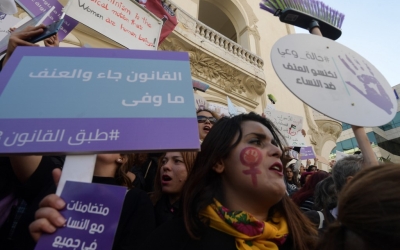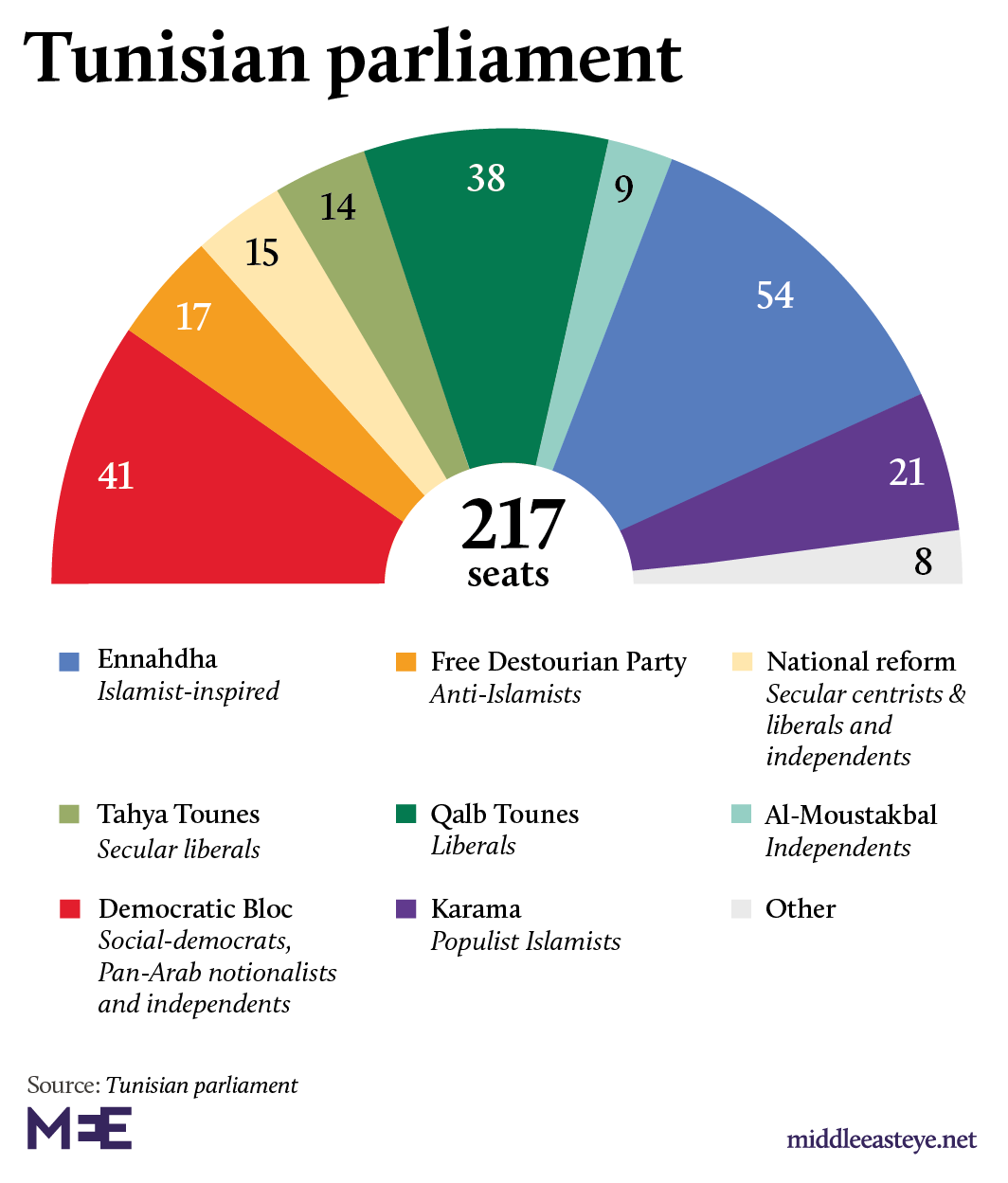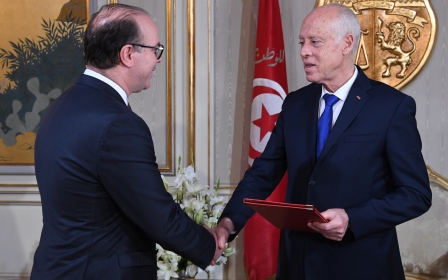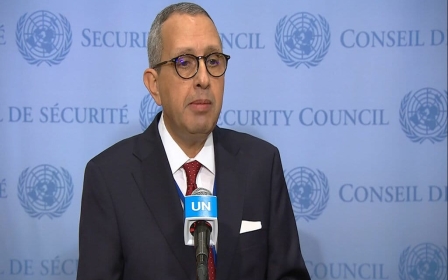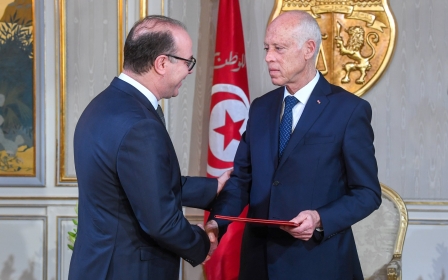After months of political wrangling, Tunisia's parliament approves new government
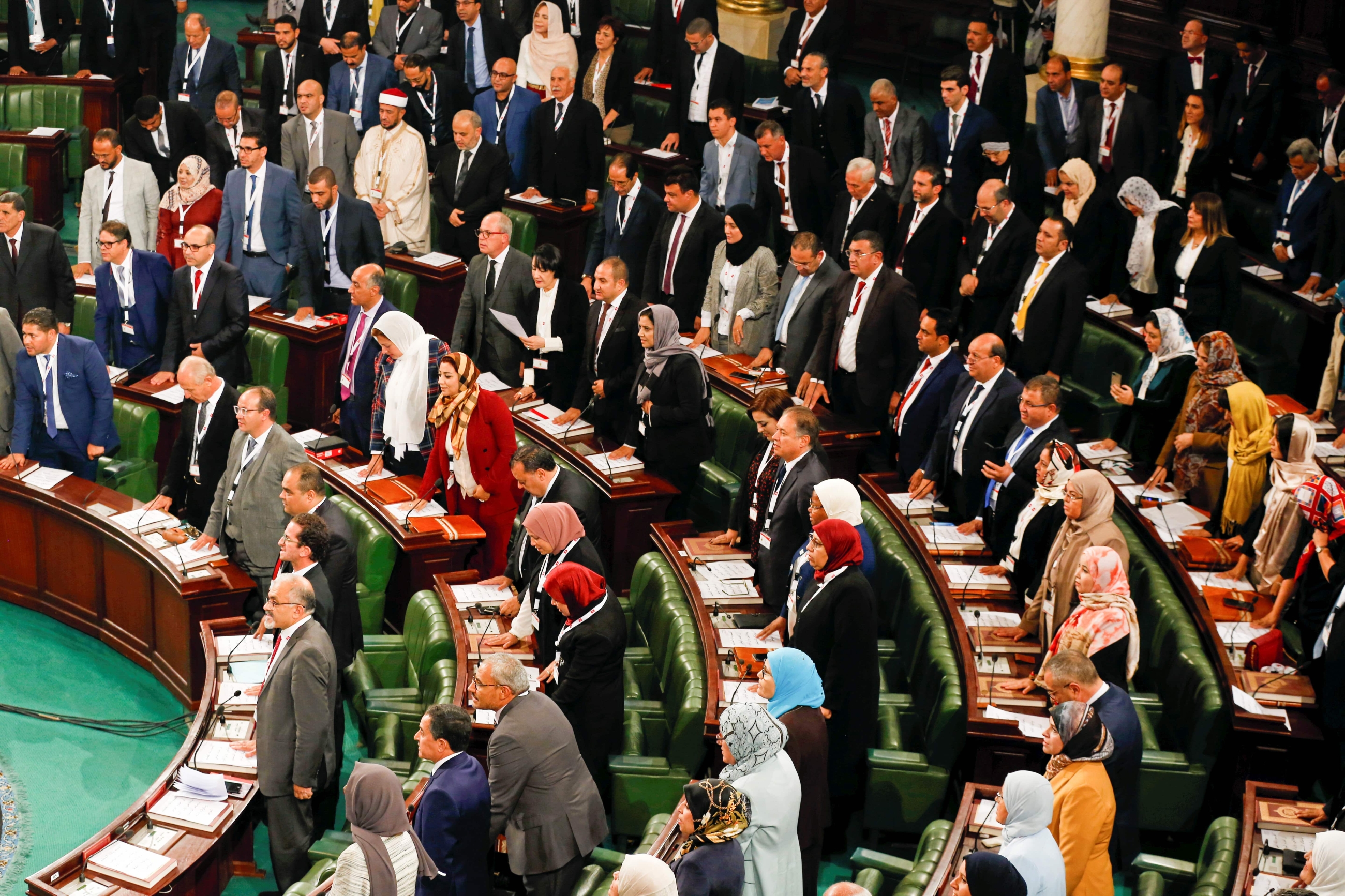
Tunisia's fractured parliament has voted to approve the formation of a new coalition government, bringing an end to months of political deadlock in the only democracy to emerge from the "Arab Spring" uprisings.
Prime Minister Elyes Fakhfakh's government passed a vote of confidence by 129 to 77 early Thursday, after weeks of complicated talks with Ennahda, the party with the largest number of seats in parliament.
The moderate "Muslim democrats," who have popular appeal across the North African country, had earlier said they would not sign off on the cabinet, but relented when Fakhfakh brought together a coalition from across the political spectrum.
The new government, which was presented to President Kais Saied last week, includes lawmakers from an array of political parties, including Ennahda, Tahya Tounes, Achaab, Attayar, the El Badil parties and independents
"We have spent a lot of time since the 6 October legislative elections to form a government," parliament Speaker Rachid Ghannouchi told legislators ahead of the confidence vote.
New MEE newsletter: Jerusalem Dispatch
Sign up to get the latest insights and analysis on Israel-Palestine, alongside Turkey Unpacked and other MEE newsletters
'Fakhfakh's government has a fragile base. With the little support it does have in parliament it can't do much,'
- Osama Khelifi, MP and deputy leader of Qalb Tounes
"All this has proved the strength of the Tunisian experience and its ability to manage discord and dialogue in accordance with the constitution and away from populism and political tension.”
Qalb Tounes, the party of controversial media tycoon Nabil Karoui, and the Free Destourian Party, led by anti-Islamist lawyer Abir Moussi, both voted against the government line-up after being excluded from coalition talks with Fakhfakh.
The prime minister had rejected their participation after vowing to only draw support from parties he considered to be in line with the goals of the 2011 revolution.
"Fakhfakh's government has a fragile base," said Osama Khelifi, an MP and deputy leader of Qalb Tounes who voted against the line-up. "With the little support it does have, it can't do much."
Aymen Zaghdoudi, a professor of constitutional law at the University of Carthage in Tunis, agreed, telling Middle East Eye that the Islamist-populated government would fail to overcome several hurdles, including passing laws to amend the constitution - which require a two-thirds majority in parliament.
"A symptom of the failure of the government can be seen in the disparity between members of the coalition, some of whom are social democrats and others who are liberal," he said.
"This situation will be a real hurdle when it comes to realising reforms, particularly in social and economic fields."
'Pro-revolution and anti-corruption'
The only Middle Eastern country to transition to a democracy after the 2011 uprisings, rather than going through a crackdown or civil war, Tunisia has had nine governments since 2011 with political infighting and protests mounting against austerity-driven coalition governments.
The North African country has a 15 percent unemployment rate, a large public debt and inadequate public services - problems that drove voters to reject the political establishment in last autumn's presidential and parliamentary elections.
"Putting forward a coherent and decisive political program will be one challenge for this government, another will be to re-build public trust in its parliamentary apparatus and ward off the impression of backroom dealings and clientelist arrangements," said Max Gallien, a Tunisia analyst and research fellow at the Institute of Development Studies (IDS) in the UK.
"But the unity of the government is not the only interesting question; it will also be interesting to watch how oppositional actors are able to position themselves vis-a-vis the government, and try to gain traction as a genuine programmatic alternative, something that many parties in the past have struggled with."
Analysts say with Qalb Tounes serving in opposition to the government, Fakhfakh's government may struggle to gain the strong parliamentary majority needed to resolve the country's long-standing economic problems.
"Fakhfakh's coalition will be more ideologically coherent than the 2015 Ennahda-Nidaa Tounes alliance, in the sense that these parties will be primarily pro-revolution and anti-corruption," Sharan Grewal, a research fellow at the Brookings Institution, told MEE.
"That said, there is little agreement on the major economic reforms - Tahya Tounes and Achaab publicly disagreed on whether to permit the privatisation of state-owned enterprises.
"So I think the coalition will focus initially on the main economic reform that unites them - anti-corruption - and further postpone the structural reforms to the public sector until the coalition can find agreement internally."
Middle East Eye delivers independent and unrivalled coverage and analysis of the Middle East, North Africa and beyond. To learn more about republishing this content and the associated fees, please fill out this form. More about MEE can be found here.


